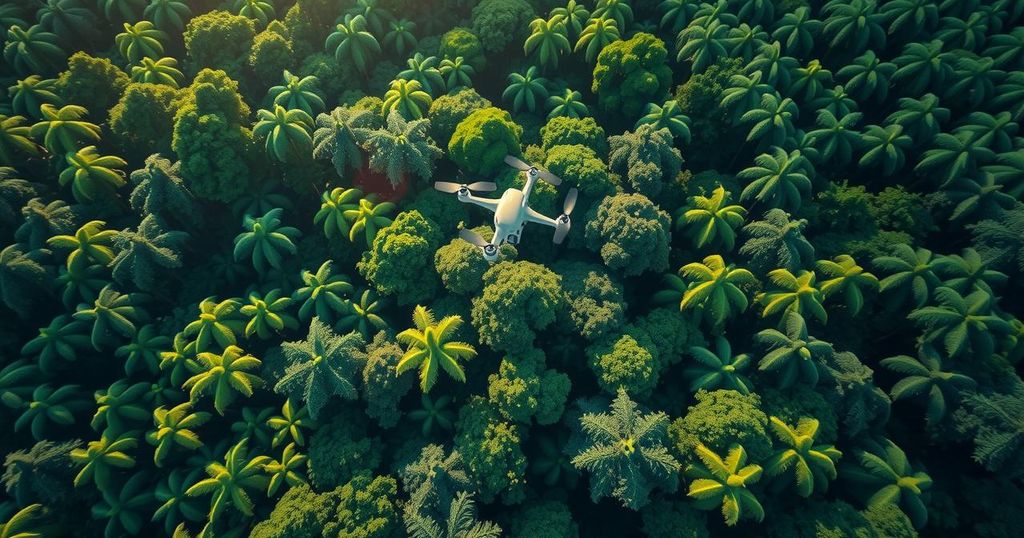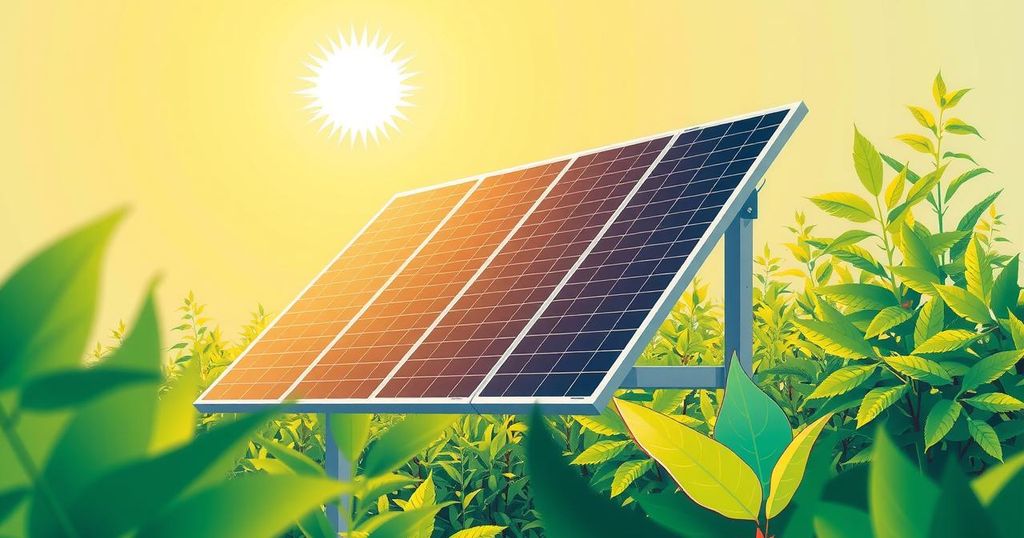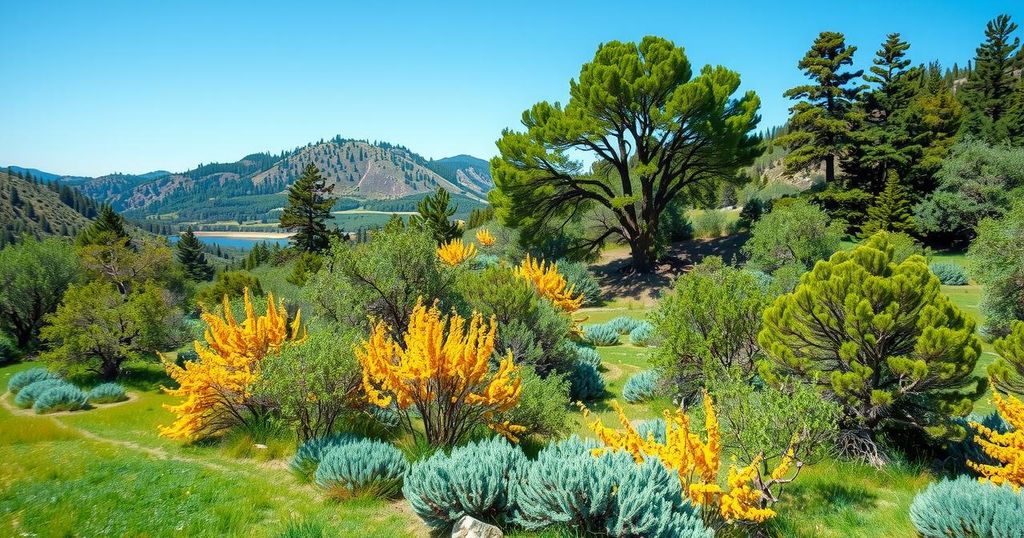The Yanomami Indigenous youth are employing drone technology to monitor their vast territory in Brazil’s Amazon against illegal mining. Trained through initiatives led by the Hutukara Yanomami Association, they aim to protect their ancestral land and cultural heritage while addressing the environmental crisis caused by mining intruders. With governmental support under new leadership, the Yanomami are focusing on community empowerment and sustainable management of their resources.
In the Yanomami Indigenous Land, leaders recognize the importance of empowering youth to sustain the legacy of their ancestors and protect their extensive territory, comparable in size to Portugal. This region, situated in the Brazilian Amazon between Roraima and Amazonas, has encountered a humanitarian and environmental crisis due to the incursion of approximately 20,000 illegal miners searching for valuable minerals such as gold and cassiterite.
To combat the threat posed by illegal miners, the Yanomami youth have begun utilizing drone technology for land surveillance and monitoring. Amidst the grim circumstances of illegal invasions that took root seven years ago, the Yanomami sought solutions beyond appeals to a previously unsupportive federal government. Under the leadership of the Hutukara Yanomami Association (HAY), a project was initiated to train youth in drone operation, bolstered by international support.
Established in 2021 at the COP26 climate summit, this initiative emphasizes youth development. With drone technology, the Yanomami can monitor their vast territory more effectively than on foot or in canoes. “The objective was to train young Yanomami as teaching multipliers for their peers,” explained Maurício Ye’kwana from HAY, highlighting the dual mission of technology application and educational outreach.
Recent advancements included an advanced training module for drone operation, completed by 26-year-old Cidiclei Palimitheli, who now actively monitors the territory. He noted, “I really enjoyed this workshop because I learned more about how to drive the drone and map our territory,” underscoring the importance of incorporating technology to safeguard cultural traditions and enhance environmental protection.
Since 2022, the Yanomami have conducted three training workshops aimed at addressing the effects of illegal mining, particularly in Roraima. Participants like 24-year-old Alexandre Ye’kwana expressed confidence in their newfound skills, stating, “I want to map the mining area, and I can already do that without the teacher,” reflecting the program’s effectiveness in empowering local youth.
The election of President Luiz Inácio Lula da Silva provided renewed hope for Indigenous people in Brazil, promising protection for their lands. However, challenges persist as illegal miners continue to defy eviction efforts. With government-led raids resulting in significant reductions of illegal mining, the Yanomami are increasingly reliant on community-driven initiatives, such as drone monitoring to maintain their territorial integrity against outside threats.
Working alongside the Indigenous Council of Roraima (CIR), HAY implemented a series of training workshops designed to enhance drone operation skills among the Yanomami youth. Giofan Erasmo from CIR shared his enthusiasm over the program’s outcomes, noting, “After studying the advanced module, they taught others how to use drones to take photos of the Indigenous territory,” thereby fostering communal knowledge-sharing and collaboration.
The workshops equipped participants with skills to generate georeferenced images vital for monitoring waterways, which are particularly threatened by mercury pollution from mining. Erasmo commended the transformative progress made by the youth, remarking, “Three years ago, they had no idea about drones, and now they have already reached an advanced level of operation.”
The collaborative effort among Indigenous trainers contributes to effective learning, as Erasmo explained the significant connection fostered through shared cultural backgrounds. Continuous training will be essential for the Yanomami to maintain oversight of their land, as reliance on government action may not suffice long-term. “The Yanomami themselves must play a leading role,” he asserted, framing the future of their territory in their hands.
In summary, the Yanomami community is taking proactive measures to safeguard their land through the innovative use of drone technology. With increased training and empowerment of the youth, they are better equipped to monitor their vast territory against illegal invasions. The collaboration between Indigenous organizations and external supporters illustrates a model for community-led conservation that may redefine their future amidst ongoing challenges. Continuous education and proactive involvement are essential for sustaining their territorial protection initiatives.
Original Source: news.mongabay.com




